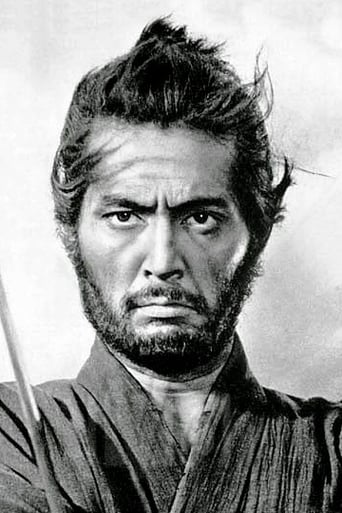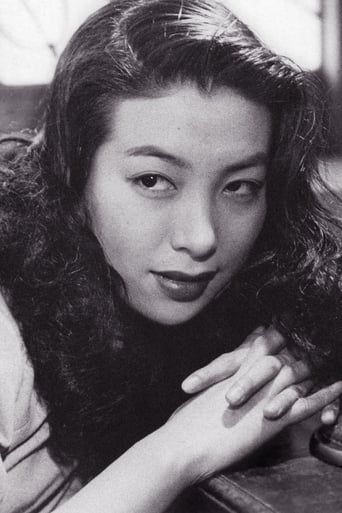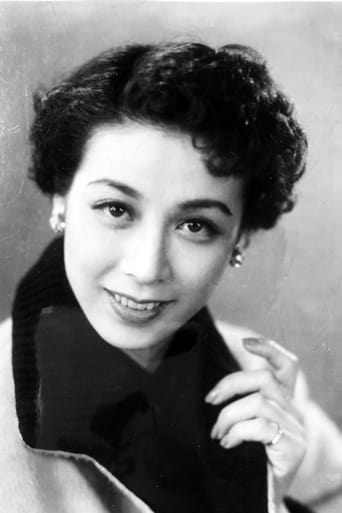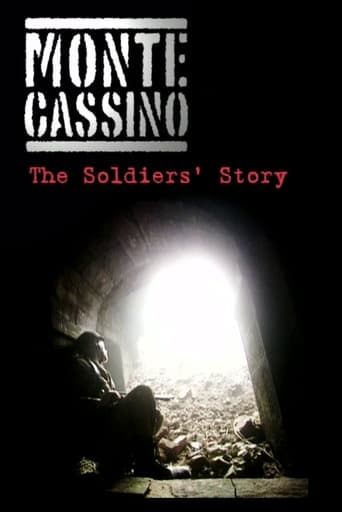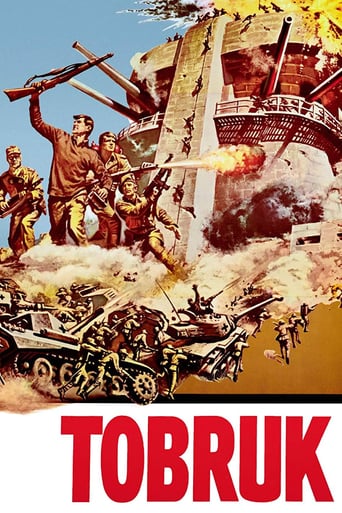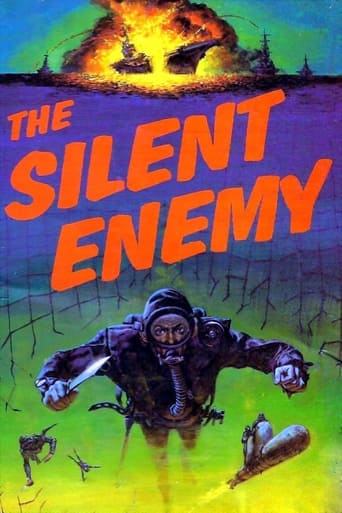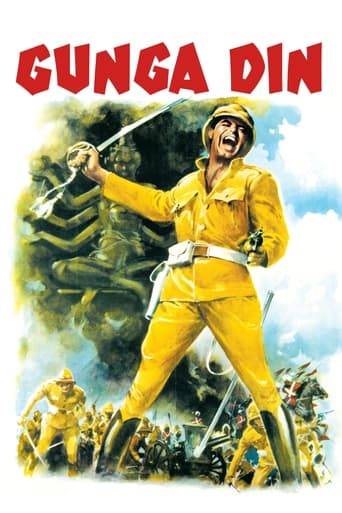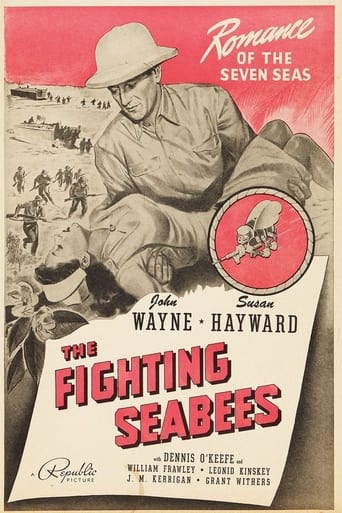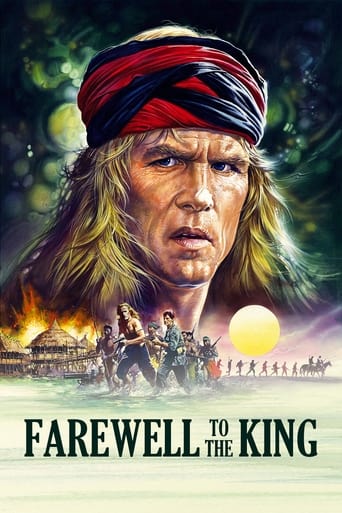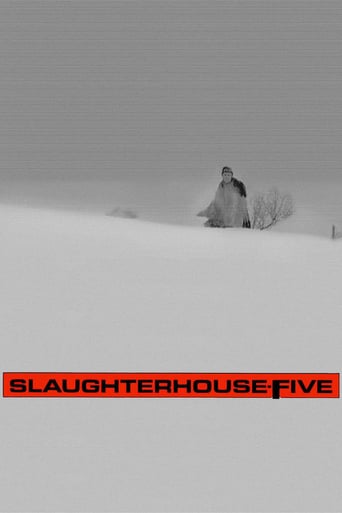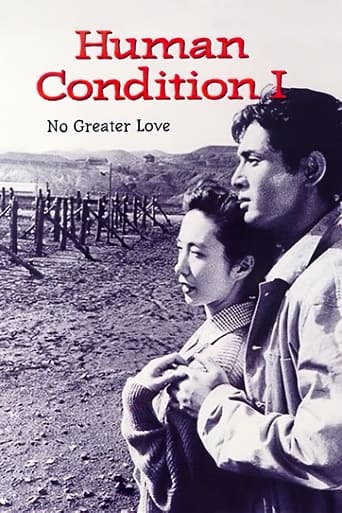
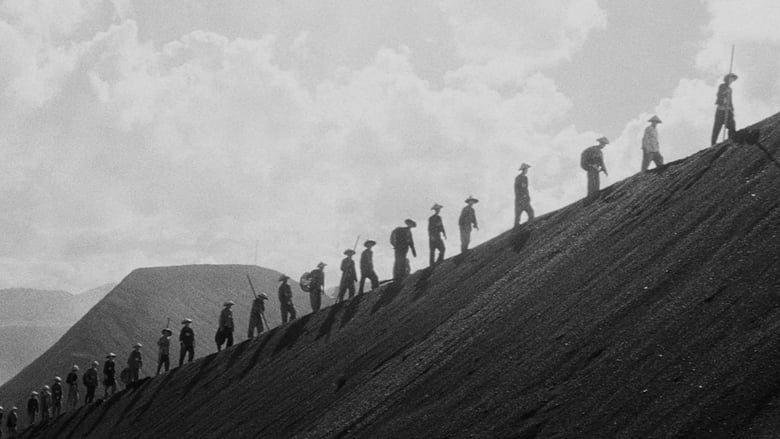
The Human Condition I: No Greater Love (1959)
After handing in a report on the treatment of Chinese colonial labor, Kaji is offered the post of labor chief at a large mining operation in Manchuria, which also grants him exemption from military service. He accepts, and moves to Manchuria with his newly-wed wife Michiko, but when he tries to put his ideas of more humane treatment into practice, he finds himself at odds with scheming officials, cruel foremen, and the military police.
Watch Trailer
Cast


Similar titles
Reviews
Pretty Good
I don't have all the words right now but this film is a work of art.
Admirable film.
This movie was so-so. It had it's moments, but wasn't the greatest.
The Human Condition (Ningen no jôken) is a 9,5 hour long epic film trilogy directed by Masaki Kobayashi, based on the six volume novel by Junpei Gomikawa. The trilogy stays true to the novel's composition by being divided into six parts, meaning that each of the three installments are split in two parts, in between which are intermissions. Both parts in the first film begin with the same opening credits sequence, showing us some stoneworks portraying dramatic imagery (the similar intro opens all three films). The three movies, each long 3 hours or more, are called No Greater Love, Road to Eternity and A Soldier's Prayer.No Greater Love introduces the main character Kaji, a pacifist during the chaotic mess that was Japan during WW2. To avoid being drafted, he moves to Manchuria with his wife, where he becomes a labor camp supervisor and clashes with the oppressive nature of camp officials and their lower-ranked men.Masaki Kobayashi's films often feature individuals against an oppressive and totalitarian system, be it the feudal Japan in Harakiri and Samurai Rebellion, or WW2 occupied Manchuria in The Human Condition. Kobayashi himself was drafted into the army and sent to Manchuria during the war, meaning that the character of Kaji is not far away from the director himself. Some people accuse the trilogy to be too melodramatic - well, if that's how Kobayashi saw the situation, and he was there, I don't have much of a big problem over it.Kaji is brilliantly portrayed by Tatsuya Nakadai, one of the most versatile Japanese actors. He handles the role fantastically and lives up to the challenge of carrying the entire 9,5-hour plot on his back. Michiyo Aratama, who played Michiko, is perhaps more well-known for her role in Kobayashi's Kwaidan.The Human Condition offers some brilliant widescreen composition and magnificent B&W imagery, as most Kobayashi films do. The film has some problems, though, most of which are of strictly technical nature. First, some of the violent scenes were filmed awkwardly, like the whipping scene listed under IMDb "Goofs". Second, because the entire cast was Japanese, the Mandarin spoken by the miners is very unrealistic (doesn't bother me personally, but it's still there). Third, the mining conditions are surprisingly underplayed and were even harsher in real life. Fourth, the music is sometimes too annoying, loud and even useless in several scenes.But overall, this is definitely a film you have to check out if you're into Japanese cinema, WW2 films, or epic films in general.8,5/10
Sometimes you watch a film that literally touches your soul . THE HUMAN CONDITION trilogy is one of these films . I saw this on Channel 4 in 1985 and never forgot it . A few years ago I mentioned seeing this to a professional film critic who seemed surprised that he wasn't the only person who'd seen it and was disappointed when I said I didn't have a video or DVD copy of the trilogy . In a film class I mentioned to the tutor that every scene in the trilogy was a scene of absolute beauty . My tutor , a film historian and myself then engaged in such an enthusiastic conversation that ALL the other students in class started taking notes determined to see this movie masterpiece . Recently I was involved in a conversation with a student who had enrolled in a class involving Japanese cinema and recommended the trilogy to him . I then mentioned that perhaps it's a good thing I'd hadn't seen it for 25 years and perhaps I'd never watch it again in case it was nowhere as wonderful as I remembered . After seeing part one of THE HUMAN CONDITION last night after a gap of 25 years I was left with the distinct impression that perhaps I should have taken my own advice and hadn't re-watched it It's still a beautifully framed and shot film down to director Masaki Kobayashi and cinematographer Yoshio Miyajima but the inherent problem with the film starts in the opening scene where Kaji refuses to pop off to a dormitory to have sex with his wife to be . Why not ? well it's never really revealed . Nor is it ever revealed what motivates Kaji in to being such a saintly and pious personality and the more the film goes on the more morally upstanding Kaji becomes so much so that it almost ruins the film since he's difficult to take seriously . I don't think I've heard of anyone more moral since that mythical figure from Bronze Age Palestine . Does anyone seriously believe that someone like that would be put in charge of a Manchurian labour camp ? And the portrayal of the camp leads to a second body blow for the film . Try and imagine SCHINDLERS LIST where the Nazis weren't all that bad ! The inmates of the labour camp receive the occasional beating but that's about it as far as crimes against humanity is concerned . . We see Korean " comfort women " who it seems volunteered to become prostitutes and if anyone escapes from the camp then there's no summary retaliation taken against the remaining prisoners . Google " The Rape Of Nanking " or " The Burma Railway " or " Bataan Death March " and you'll get just tiny fraction of the atrocities committed by the Japnese from the period . The only difference between Nazi war crimes and Japanese ones is that the Nazis used gas There is a subplot where the Kempeitai- the Imperial Japanese version of the Gestapo - take over the running of the camp and execute some prisoners by beheading ( This is done because the prisoners attacked a guard and tried to escape so there's reason for them to be executed ) but this is included to give us yet another overwrought angst ridden melodramatic scene showing us what a wonderfully humanistic , noble person Kaji is And perhaps THE HUMAN CONDITION is best described as " overwrought melodrama " . It still remains a good film but I have seen many good films and very few films have stayed with me for 25 years so in this respect it's somewhat a bitter disappointment . It's like meeting an erstwhile love of your life only to realize they weren't the person you remembered them as
The Human Condition has too many technical flaws, goes on too long, and, especially, its first 60% gets annoyingly moralistic and preachy at times (although Kaji does sink into a bit of justifiable depravity by film's end), to be considered an inarguably great film, but so much of the rest of it is assuredly great that it has to be in the argument for greatness, therefore I can term it a near-great film, even if, for many, it will seem an irredeemably depressing film; not unlike Theo Angelopoulos's The Weeping Meadow. This observation is true, but it is not a reason to avoid the film, nor art, because a work of art that depresses is not to say that it is not successful for that, if its depression spurs one on to cogitation over why this is. Also, criticism of the love that Kaji holds for his wife are all based on the assumption that the lead character is supposed to be an idealization of the average man rather than an example of the rare man, the potentially great man, who is denied his due. Therefore, the commonplace qualities of love and fidelity that a superior man holds become, in this misinterpretation, an idealized and unrealistically (capital r) Romantic flaw. But that is the flaw of the critics, not the artist.The film's equivocal excellence is probably no better exemplified than in its portrait of the Japanese Army. On the one hand the film seems to go a bit too light in its portrayal of the Japanese mistreatment of its Chinese victims (for with every passing year it seems that the Japanese Imperial Army made the Nazis seem like rank amateurs in human depravity), yet, on the other hand, the film does a great service in its humanizing of the average Japanese soldier from inhuman automatonic supermen to flawed misfits who often criticize and mock their superiors and the war's rightness. And while it abounds in caricatures and near-caricatures, the film also does an outstanding job of getting to specific moments of intensity (however prosaically- not poetically- rendered) between characters, in what would otherwise seem a mundane interaction. This allows for the speedy introduction of characters and building of empathy with them.The DVD, by The Criterion Collection, is one of the best releases they have had in the last couple of years. I've chided the company for skimping on audio commentaries in recent years, but this film's length, and the fact that it is spread over three disks, pretty much obviates any necessity for a commentary, and even an enthusiastic talking head like Japanese film expert Donald Richie or film critic Roger Ebert (were he healthy) would inevitably spend most of the nine plus hours on dead air. As usual, I wish all black and white films had easier to read subtitles than mere white font, but there are only a few instances of difficult to read wordings. Given that this film had an international release at a time when foreign films were routinely dubbed, it would have been great to have had an English language audio dubbed option, for likely one existed. There is an oddity in that there are Japanese subtitles on the right side of the screen for the Japanese audience, at moments characters speak Chinese. The fourth disk has all the supplements, and while it is missing an extended making of featurette, there are some good moments in interviews conducted with the film's director and star, and a short video bon mot of the film from Japanese filmmaker Masahiro Shinoda. There are some trailers and an insert essay, as well. But, this is there are DVD where the extras are really just that. Even with nothing, this film is worth seeing. It is also a very good restoration, in a 2.35:1 aspect ratio, of the film compared to earlier VHS and DVD releases, many of which split the film into its three parts: No Greater Love (1959), Road To Eternity (1960), and A Soldier's Prayer (1961).The film's cinematography, by Yoshio Miyajima, is always solid, with a few moments of adventure- such as a shot as a tank roars overhead, but it is never spectacular. The scenes shot in a studio often clash with location shots, texturally. As for the use of black and white, no one is liable to confuse this film with the masterworks of an Orson Welles nor Michelangelo Antonioni. The film's score is one of its weakest elements, too often telegraphing 'important' moments. Nakasdai's acting dominates the film, for he is in virtually ever scene, and his slow transmogrification from bleeding heart liberal who sells out to stoic killing machine (he's an excellent soldier despite his avowed humanism) who years for his wife is subtle, believable, and most importantly, lets the viewer empathize with him. The Human Condition is one of those works of art that is not great, but has so much going on, at any moment, that it is not difficult to forgive its flaws- even those that glare, for another excellent or better moment will soon recapture your admiration. And, it's only in true epics that such largess is to be found. Excelsior!
Kobayashi's "The Human Condition" is one of a handful of great anti-war movies. While Japanese film has confronted its own crimes of war more than other cinema, I am only familiar with one other Japanese movie which deals directly with the war & the plight of conscientious objectors: Kurosawa's "No Regrets for Our Youth". Many films deal with the futility of war: "Seven Samurai" & "Yojimbo" come immediately to mind. But "Human Condition" takes on the enormity of war, & the means by which everyone becomes complicit in its total corruption. The hero, though a Conscientious Objector, becomes a colonial occupier, an exploiter of slave labor, an employer of a madam who runs a camp of women & girls impressed into prostitution, & generally runs the gamut of crimes against humanity while trying to maintain his virtue & love's beauty. Parts II & III also explore the brutality of the army toward its own soldiers, & the complete desecration of the ideals of the Russian Revolution & the cruelty of ordinary Chinese villagers."The Human Condition" should be ranked with "Grand Illusion", though what could be as lyrical as the Renoir film? If only this were require viewing in all military academies. If only it were required viewing for all lawmakers & the executive. Is that asking too much?


